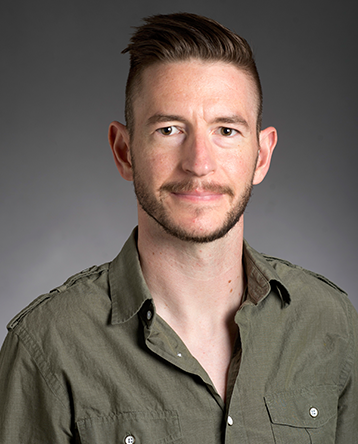Ryan Sullivan
Professor, Chemistry, Mechanical Engineering
Courtesy Appointment, Civil and Environmental Engineering
Professor, Chemistry, Mechanical Engineering
Courtesy Appointment, Civil and Environmental Engineering

Ryan Sullivan is a professor in the Departments of Chemistry and Mechanical Engineering at Carnegie Mellon University. He is also a faculty member in the Centre for Atmospheric Particle Studies. Sullivan has a background in atmospheric and analytical chemistry, single-particle analysis, heterogeneous kinetics, and cloud nucleation research. His research interests include the development of improved aircraft-deployable analytical instrumentation to characterize individual particles in the atmosphere in real-time. These instruments are used to investigate the physicochemical properties of atmospheric particles emitted and produced from a variety of sources, the chemical processes they experience during atmospheric transport, and how these processes modify the ability of particles to nucleate both cloud droplets and ice crystals, thus altering cloud properties and the Earth’s climate. These research endeavors involve equal parts instrument development, laboratory experiments, and field measurements.
2008 Ph.D., Chemistry, University of California, San Diego
2006 MS, Chemistry, University of California, San Diego
2002 BS, Chemistry, University of Toronto
Mechanical Engineering
From improving public health to making more efficient, more sustainable energy sources, researchers in Carnegie Mellon University’s Department of Mechanical Engineering devote their time to solving the world’s most complex problems.
CMU Engineering
The inaugural cohort of the the Engineering Leadership Fellows program is ready to begin year-long leadership development journey.
Daily Mail
MechE’s Ryan Sullivan was quoted in the Daily Mail about the safety of household cleaning products like air fresheners. “To a chemist ‘really clean’ would actually be no scent because the scent is caused by a chemical,” Sullivan first told the Washington Post.
Yahoo
MechE’s Ryan Sullivan shares his thoughts on fragrance products in Yahoo. “Products can contain dozens of chemicals, and all it shows up as is one word on the ingredient list: fragrance,” he says.
Chemistry World
MechE’s Ryan Sullivan spoke with Chemistry World about the contentious topic of water microdroplet chemistry, which has inspired mixed feelings among researchers in the field.
Military Times
ChemE’s Ryan Sullivan makes a comment about the unique chemical bonds found in PFAS-containing firefighting foams in Military Times.
The Washington Post
MechE’s Ryan Sullivan talks with The Washington Post about how air fresheners can actually have serious adverse effects on consumers.
CMU Engineering
Ryan Sullivan has been developing new methods to measure “forever chemicals” in the atmosphere and aerosol particles to answer outstanding questions regarding the components that lead to human exposure.
CMU
MechE’s Ryan Sullivan and Research Accelerator Hamish Gordon have received funding from the Department of Energy to continue studying how wildfire emissions could affect the climate.
Wilton E. Scott Institute for Energy Innovation
Faculty affiliates Ryan Sullivan and Hamish Gordon have received a new atmospheric research award from the Department of Energy aimed at improving climate change predictions.
Collegium Helveticum
MechE’s Ryan Sullivan organized a workshop titled “Everyday-Everywhere Chemicals and the Human Exposome” at the Collegium Helveticum.
the Center for Atmospheric Particle Studies
Sudoc, a startup co-founded by CMU’s Terrence Collins and Ryan Sullivan, has been named one of 10 startups to watch by Chemical & Engineering News. Sudoc is developing and commercializing TAML catalysts, a bioinspired environmentally friendly molecule that outperforms toxic chemicals in a wide range of applications and can be used to remove pollutants from natural and built environments.